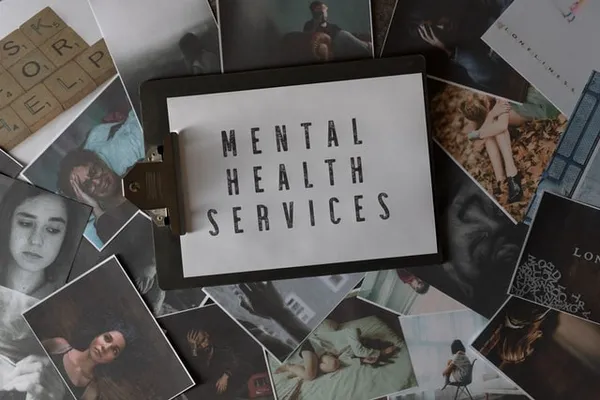The World of Schizophrenia
This blog post is associated with episode 12 of the podcast with Newvick Lee. He shares his past experiences as a pharmacist working with schizophrenic patients.
Schizophrenia is a chronic brain disorder that includes symptoms such as delusions, hallucinations, disorganized speech, and difficulty with thinking and focusing. Although this is in a slightly different realm from mental health disorders like anxiety and depression, individuals with schizophrenia often face challenges with their thinking, behaviours, and emotions. While it may not be as prevalent as depression or anxiety, learning about schizophrenia can increase empathy and help us communicate and support others with this disorder in a more effective way.

Whenever I try to learn about a new concept, I find that reading or hearing about people’s experiences provides a plethora of insight that I cannot find by reading WebMD. This prompted me to reach out to people who have direct experiences and I was fortunate that my brother, Newvick, worked with a number of schizophrenic patients while he was a pharmacist. The remainder of this post will act as a summary of the podcast episode about his experiences working with schizophrenic individuals.
I was first surprised to hear that he worked with schizophrenic patients outside of prescribing medication or in a retail pharmacy setting. Pharmacists can also work as part of a home health care program or in the community, where they bridge the transition from hospital discharge to being back at home or in the community. Their goal is to help patients cope with their condition and adhere to their medication regimens. Initially, nurses will visit patients regularly or even daily, depending on the condition, and provide a check-up to see how they’re doing. As there are multiple aspects of care provided, pharmacists may also collaborate with other healthcare providers including psychiatrists, family physicians, nurse practitioners, social workers, or occupational therapists.
Currently, there is no known cause for schizophrenia but there are some indications of genetics and brain chemistry being factors for the disorder. It is also diagnosed by a medical doctor. Schizophrenia is a chronic mental disorder that affects a person’s thoughts, feelings, and behaviours. It also causes people to be out of touch with reality. Moreover, diagnosis is difficult because there are a number of other mental health disorders that are eliminated before diagnosing schizophrenia.
Symptoms are categorized as:
Newvick also references the life of John Nash, a Nobel Prize winner in economics, whose life is depicted in a movie called A Beautiful Mind. In the movie, the erratic behaviours of John Nash are actually symptoms of his schizophrenia, which he was unaware of and was living through his delusions and hallucinations as if they were real. The movie highlights that delusions are common and the onset of symptoms is typically gradual with individuals in their 20s being the period where symptoms often reveal themselves. However, Newvick emphasizes that the movie exaggerated the hallucinations as not every patient sees their delusions. Also, recovery often isn’t as quick as a short trip to the hospital. This is the most frustrating part for the patient and family involved.

Treatment includes psychotherapy and medication, which is split into treatment for acute phase and maintenance. During maintenance, atypical antipsychotics are the first line and have a common side effect of weight gain, a common problem Newvick heard from his patients. Psychotherapy aims to help patients with learning and developing healthy coping mechanisms, communicating with others, and increasing their own self-awareness and self-regulation.
The best thing anyone can do is to educate themselves about it. Learn as much as you can so you can start to understand these individuals better and support them in a way that is effective, respectful, and kind.
What’s something you can do to further your learning about areas you’re unfamiliar with?
